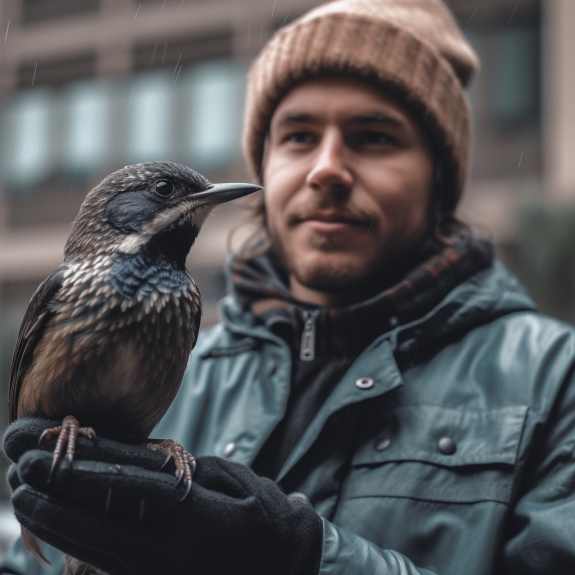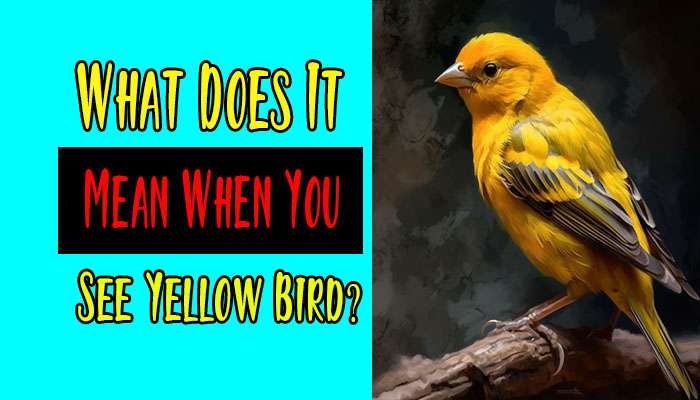Why Do Birds Fly Away From Humans? The Avian Behavior
Birds, those exquisite creatures that grace our skies and serenade us with their melodious songs, have a captivating relationship with humans. While some birds may feel comfortable perched on your windowsill, others quickly take flight when you approach.
Have you ever wondered, “Why Do Birds Fly Away From Humans?” In this blog post, we’ll unravel the mysteries behind this avian behavior and delve into the world of birds from a first-person perspective.
Why Do Birds Fly Away From Humans?

Birds are fascinating creatures that have captured our imagination for centuries. We admire their ability to fly, their beautiful songs, and their vibrant colors. But why do birds fly away from us?
Read Also: Why Do Baby Birds Poop Right After Eating?
There are several reasons why birds might fly away from humans. Some of the most common causes include:
The Instinctual Response
Birds, whether sparrows, pigeons, or robins, have evolved over millions of years, adapting to various environments and circumstances. One common thread that unites all birds is their innate instinct to avoid potential threats.
This instinctual response is deeply embedded in their DNA, and it serves as a primary reason why they often take flight when humans draw near.
When I set out to understand this behavior from the birds’ point of view, I realized that it’s not a personal rejection. It’s a survival mechanism that has been perfected over countless generations. Imagine having a built-in alarm system that alerts you to potential danger whenever someone gets too close – that’s the bird’s reality.
The Fear Factor
As I continued my research, I found that fear plays a significant role in a bird’s decision to fly away from humans. Birds are naturally cautious animals. From the ground, they are vulnerable to predators, and their lightweight bodies are not well-suited for self-defense. Hence, they tend to err on the side of caution.
So, when we approach, birds perceive us as potential threats. Even though we may have no intention of harming them, their instincts kick in, and they take flight to escape the perceived danger. It’s like playing hide-and-seek with our feathered friends – a game they take very seriously.
The Unpredictability of Human Behavior

One thing I found pretty amusing during my research is that birds find humans somewhat unpredictable. Think about it from their perspective. Humans can be loud, make sudden movements, and sometimes even chase birds away. This unpredictability adds to their perception of humans as potential threats.
From a bird’s point of view, it’s as if we have a dual personality – one moment, we’re feeding them breadcrumbs, and the next, we’re shooing them away. This inconsistency keeps them on their toes, making them ready to take flight at the slightest sign of change in our behavior.
Avian Super Senses
Birds possess some incredible sensory abilities that contribute to their flight response. They can see colors beyond our spectrum of vision, hear sounds at different frequencies, and even detect the Earth’s magnetic field. These super senses make them more aware of their surroundings, including the presence of humans.
See More: Why Are Birds Chirping at 1 AM?
So, when you’re quietly enjoying nature, and a bird suddenly takes off, it’s not just because it sensed your movement. It might have detected something as subtle as a change in the Earth’s magnetic field, which prompted it to make a hasty exit. Birds are truly remarkable creatures.
Environmental Awareness
Our avian friends are not just concerned about the human factor. They also pay close attention to their environment. Weather changes, the presence of other animals, or even the sight of a predator can trigger their flight response. Birds are constantly looking for any signs of danger, and this heightened awareness helps them survive in the wild.
Humans might not always be attuned to these environmental cues, which can lead to misunderstandings between us and the birds. However, once we realize that birds respond to the world around them, we can appreciate their resilience and adaptability.
What can we do to help birds?

There are several things we can do to help birds feel more comfortable around us. We can:
- Avoid making sudden movements or loud noises.
- Keep our distance from birds and their nests.
- Do not feed birds human food.
- Support organizations that are working to protect birds and their habitat.
By taking these steps, we can help to ensure that birds continue to thrive in our world.
Additional Information
- Birds have a very keen sense of sight and hearing. They can see and hear us long before we can see or hear them.
- Birds have a very good sense of smell. They can use their sense of smell to find food and predators.
- Birds are very social creatures. They communicate with each other using a variety of sounds, including calls, songs, and whistles.
Conclusion
The next time you wonder why birds fly away from humans, remember it’s not a rejection of your company. It results from millions of years of evolution, their instinct to avoid potential threats, and the unpredictability of human behavior.
Birds are fascinating creatures, and their ability to adapt to their environment is awe-inspiring. As we coexist with these feathered companions, we must treat them with respect and understanding.




